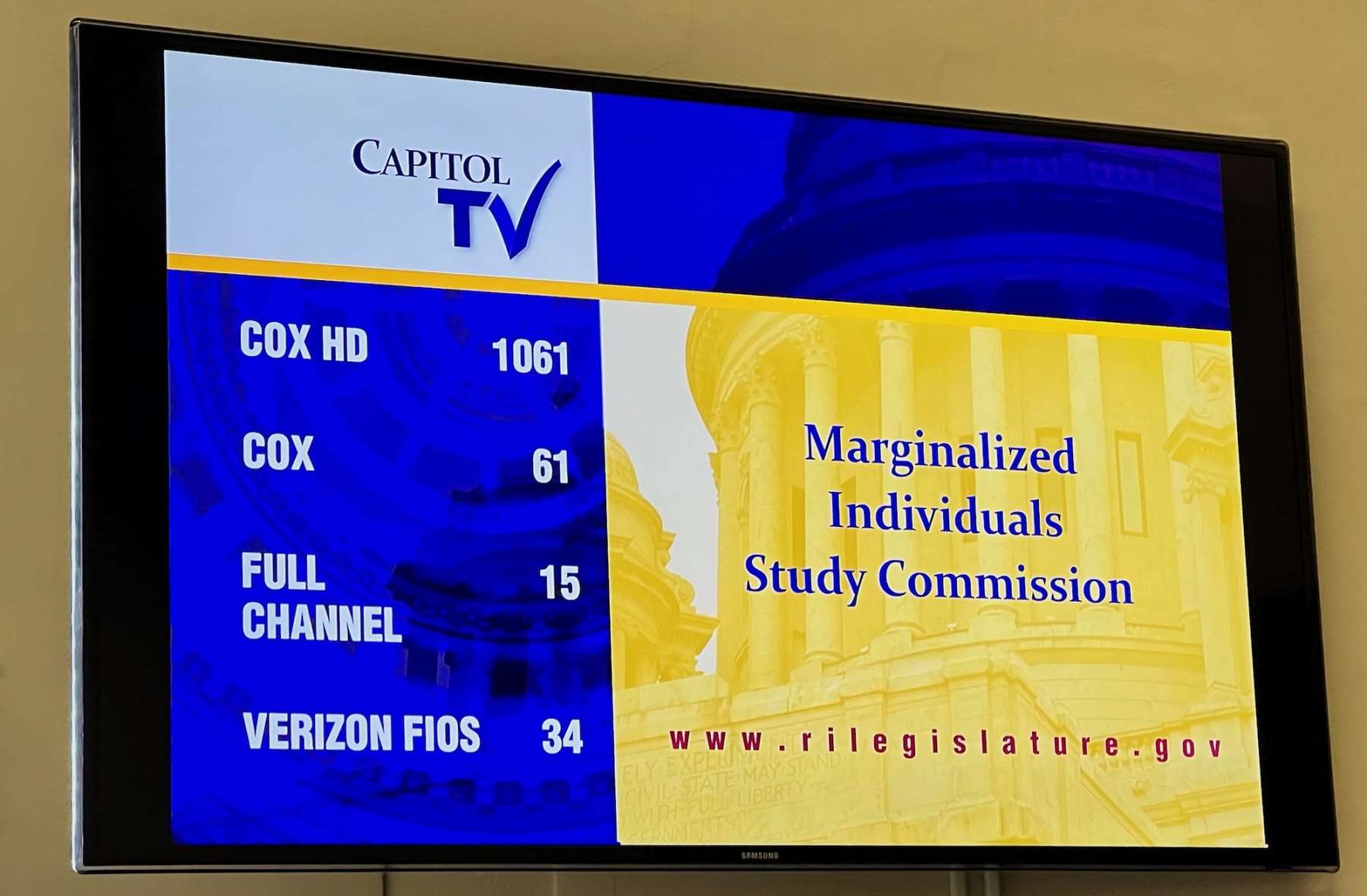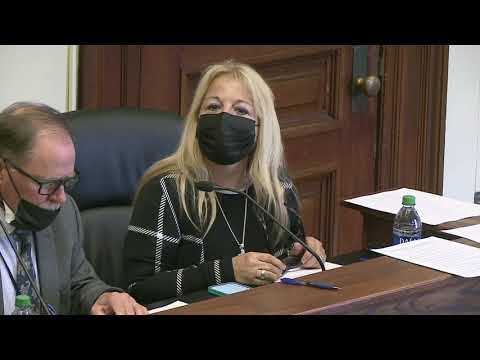State House holds first meeting of a Commission on Sex Work
“For public testimony it’s very important that we get comfortable with talking about the issues in our society and not hiding behind language that seems more appropriate or more innocent,” said Justice Gaines. “And that’s especially true when we’re dealing with populations – women, trans folks, queer folks, people of color – who often don’t get to see themselves in the language that’s used in many of these spaces.”
November 16, 2021, 4:18 pm
By Steve Ahlquist
The first meeting of a new legislative commission was held on Monday at the State House. Burdened with the long title “Commission to Study Ensuring Racial Equity and Optimizing Health and Safety Laws Affecting Marginalized Individuals,” the enabling legislation (H5250) makes it clear that the “purpose of said commission shall be to make a comprehensive study and provide recommendations on the health and safety impact of revising laws related to commercial sexual activity, identifying the methods of human trafficking and exploitation to develop strategies to reduce these activities, and ensuring accountability in the treatment of marginalized and targeted communities by police.”
In other words, it’s a commission to study sex work, as distinct from and separate from human trafficking. As such, it may be the first such state level legislative commission in the country.

Though the first meetings of commissions such as this are usually just stage setting – commission members introduce themselves to each other and elect a chair for the commission – there was some substantive dialog. Commission member Dr Philip Chan, from the Rhode Island Department of Health, wanted to make sure the commission could get robust data on human trafficking.
“There is a ton of data that has been available for years,” replied Representative Anastasia Williams (Democrat, District 9, Providence), who introduced the legislation and was elected Chair. “Data is not something we’re lacking… There’s a lot of stuff that some people know and choose to ignore… Some folks are afraid to talk about it. It’s almost to say they may want to be looked at as prudes, but my question is “Who don’t like sex?”
“There’s data,” continued Representative Williams, “but let’s hope nobody is too squeamish or too self-righteous to listen to the real conversation. We just need to get comfortable being uncomfortable because here we come.”

“Particularly for this commission, we’ll have to become very comfortable with the language around sex work,” said Justice Gaines, an organizer with PrSYM (Providence Youth Student Movement) and a commission member representing impacted populations, “Reading the resolution, it seems that the House really wasn’t all that comfortable with the language of sex work. It barely says sex and I think that’s something we’ll have to change. I don’t think we can talk about this issue if we’re afraid of language or if we’re trying to deal with this issue using words that don’t actually address what we’re talking about.
“For public testimony it’s very important that we get comfortable with talking about the issues in our society and not hiding behind language that seems more appropriate or more innocent,” continued Gaines. “And that’s especially true when we’re dealing with populations – women, trans folks, queer folks, people of color – who often don’t get to see themselves in the language that’s used in many of these spaces.”
It’s in light of these words from Justice Gaines that Uprise RI decided to refer to the commission as the Sex Work Commission.

“I want to make sure that as we’re talking about people in the sex industry we’re also talking about … clients of sex workers and … partners of sex workers – that are also impacted by criminality,” said commission member J Leigh Oshiro-Brantly, a commercial sex worker representing the Erotic Labor Alliance of New England. “[I’m] not talking about exploiters, but people who are impacted by laws that affect sex work. I want to be mindful of that because sometimes people see sex work and they think sex workers but there are other people who get caught up in the criminal/legal system.”
You can watch the full hearing here:
When determining the scope and resining behind the establishment of special legislative commissions, it’s helpful to read the reason given in the enabling legislation. In the enabling legislation for the Sex Work commission, these reasons are laid out in a series of whereases:
- WHEREAS, There has been significant research on the safety and health impact of laws specifically related to violence, exploitation, stigma, human trafficking and sexual health, but more needs to be done analyzing the data; and
- WHEREAS, These laws disproportionately impact women, transgender individuals, and people of color; and
- WHEREAS, Police treatment and behavior of marginalized and targeted communities, especially Black people and transgender women, is being highlighted and addressed throughout our Nation and the State of Rhode Island, and it is imperative upon us to ensure justice and accountability in the way our laws impact our citizens; and
- WHEREAS, There has been a documented increase in exploitation and violence against people in the sex industry in Rhode Island since the passage of federal legislation FOSTA/SESTA; and
- WHEREAS, A newly-published meta-analysis of 134 studies, spanning many nations and published over a 28-year period, showed increased violence and incidence of STIs in jurisdictions with repressive police practices; and
- WHEREAS, A 2017 study, conducted by Baylor University’s Scott Cunningham and Manisha Shah of the University of California Los Angeles, published in the Review of Economic Studies found that during 2003 through 2009, while indoor prostitution was still decriminalized in Rhode Island, the number of rapes diminished by 31 percent and the statewide incidence of gonorrhea among women diminished by 39 percent;

Here’s the full list of people serving on the Sex Work Commission:
- Representative Anastasia Williams -Chair
- Representative Edith Ajello (Democrat, District 1, Providence) – Vice Chair
- Bella Robinson, executive director of COYOTE RI, a sex workers rights group
- Robyn Linde from Amnesty International
- Justice Gaines
- Jocelyn Foye, executive director of The Womxn Project
- Dr Philip Chan
- Attorney Michael DiLauro, from the Public Defender’s Office
- Attorney Kathryn Sabatini, from the Attorney General’s Office
- Lily Picket, substituting for Elena Shih from the Brown University Center for Slavery and Justice
- J Leigh Oshiro-Brantly
- Sidney Wordell from the Rhode Island Police Chief’s Association
The next meeting of the Sex Work Commission is scheduled for December 20, 2021.







